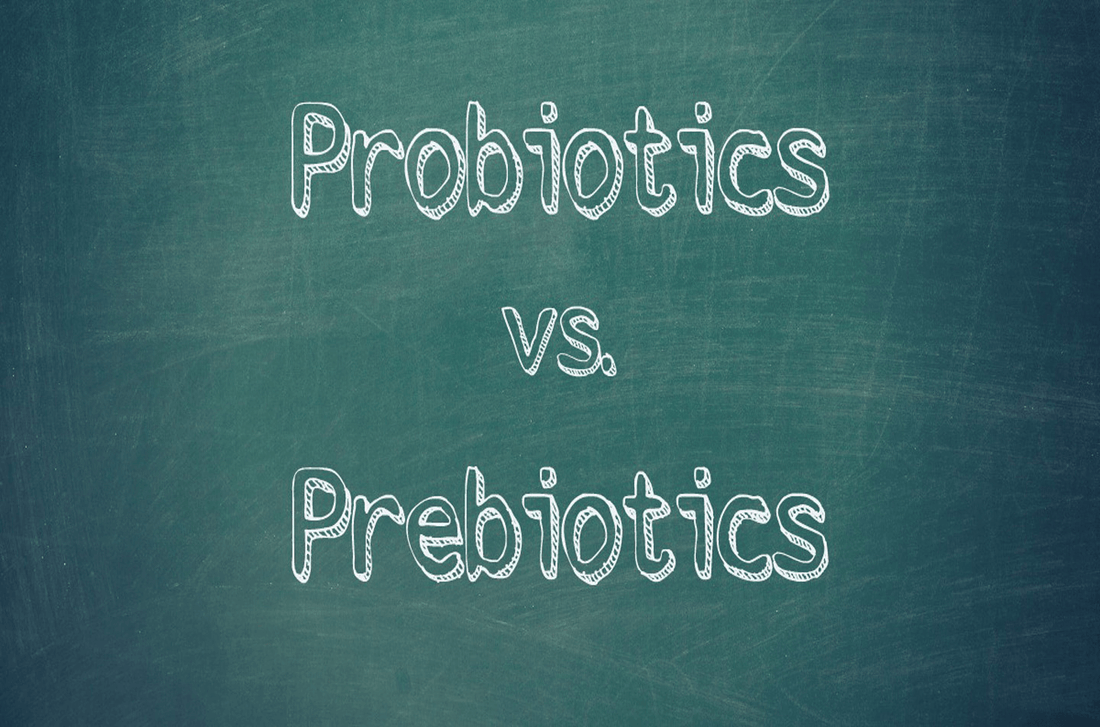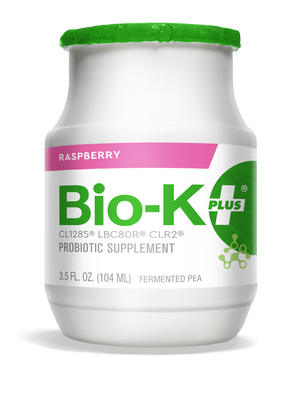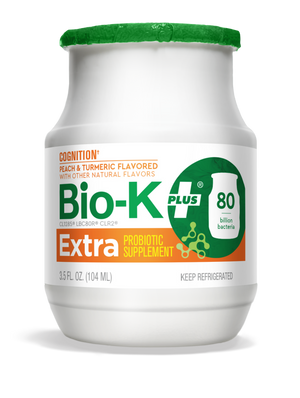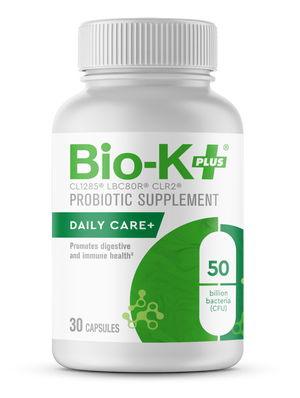Probiotics vs. Prebiotics: Similar Yet Distinct
It is a well-known fact that probiotics are great allies of the intestinal flora, especially in children. But what about prebiotics? Often confused with one another because of their similar names, probiotics and prebiotics are closely related, yet distinct. Probiotics vs. prebiotics: what exactly are the differences?
Defining Prebiotics
Present in some foods and supplements, prebiotics are carbohydrates that nourish the intestinal flora by stimulating the fermentation of probiotic bacteria in the digestive system. Because they are indigestible, these macronutrients are also considered as fibres. But not all fibres are prebiotics! To qualify, fibres must be able to resist both gastric acid and enzymes in the upper digestive tract. They must remain intact so they can be used as nutrients by the intestinal flora.
Prebiotics’ Benefits
When prebiotics are in symbiosis with probiotics, the prebiotic effect occurs, which increases the number of good bacteria in the intestine. This effect is said to play a positive role in the prevention and treatment of intestinal infections in children. Probiotics also facilitate the absorption of certain minerals and trace elements, such as calcium and magnesium.
Moreover, it has been claimed that prebiotics can have favourable effects on the allergies of infants, as well as on the frequency and consistency of their stools. Further research is nevertheless necessary to confirm these benefits.
What are the Risks Associated with Prebiotic and Probiotics Supplements?
Prebiotic and probiotic supplements, like the foods that contain them, are generally safe in regard to the health of kids, babies, and pregnant women. A higher consumption of a particular type of fibres may also lead to gastrointestinal pain in people suffering from irritable bowel syndrome (IBS).
Where to Find Prebiotic and Probiotic Supplements?
The term “prebiotics” refers to the ensemble of indigestible dietary components that positively influence the intestinal microbiota. The most common types include: fructo-oligosaccharides (FOS) and galacto-oligosaccharides (GOS). Both can easily be found in everyday foods. For instance, inulin, which belongs to the FOS category, is present in artichokes, garlic, bananas, whole grains, and chicory root.
As for GOS’s, they are found in fermented milk products and grain legumes, such as beans, as well as in breast milk. Compared to cow’s milk, breast milk contains large quantities of oligosaccharides, which contribute to decreasing the risk of diarrhea in babies.
Even though they are not crucial to the survival of good bacteria, prebiotics give probiotics a boost by stimulating their growth and activity. There is currently no specific recommendation concerning the daily dose for you and your child. The ideal approach to settling the debate on probiotics vs. prebiotics, and maximizing the benefits of prebiotics, would be to associate prebiotics and probiotics as being part of a healthy, everyday diet.
References:
http://www.sciencepresse.qc.ca/blogue/2010/04/21/probiotique-prebiotique
http://www.swiss-paediatrics.org/sites/default/files/paediatrica/vol15/n6/pdf/22-23.pdf
https://www.ncbi.nlm.nih.gov/pmc/articles/PMC3705355/
http://www.med.monash.edu.au/cecs/gastro/prebiotic/faq/





